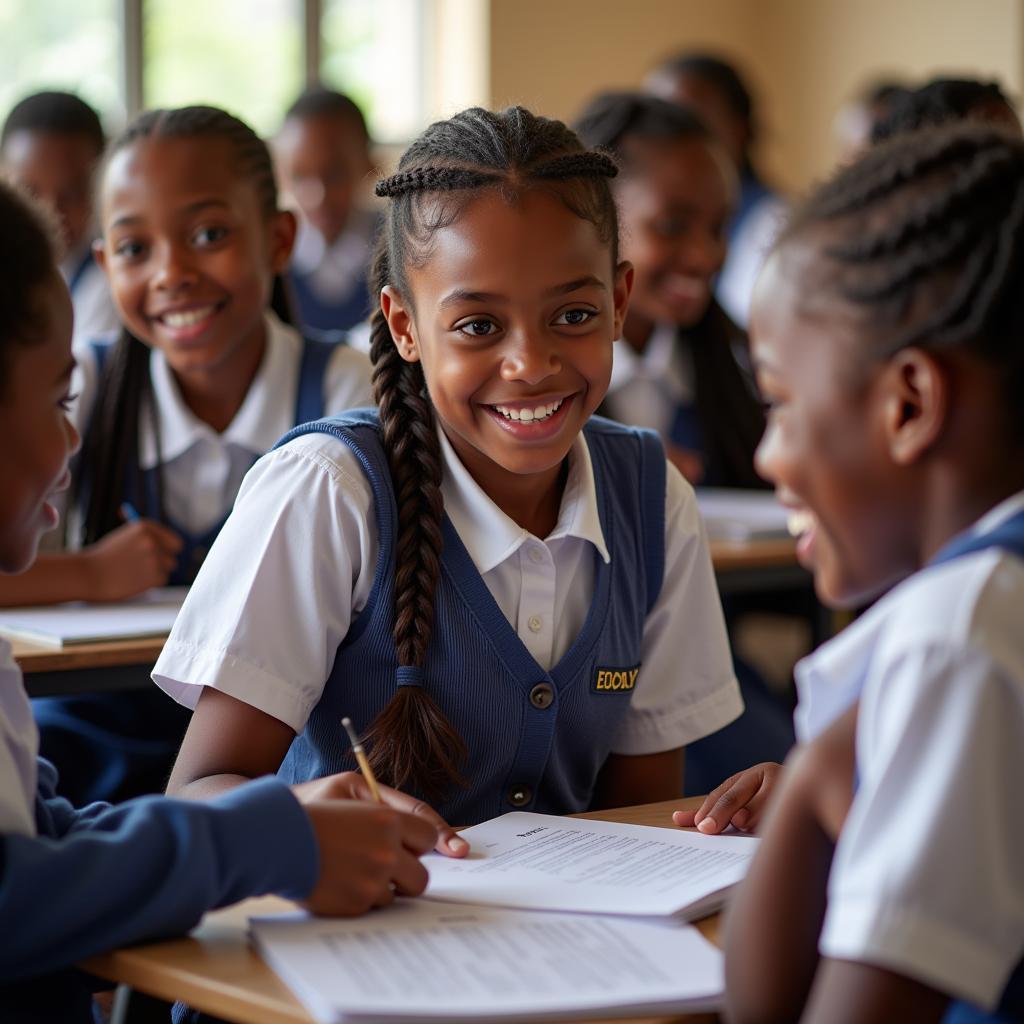Exploring the World of the African Female Writer
African Female Writers, a diverse and powerful group, have captivated the literary world with their poignant stories, insightful perspectives, and evocative prose. Their works transcend geographical boundaries, offering a glimpse into the rich tapestry of African cultures, histories, and experiences. From the vibrant streets of Lagos to the sun-drenched plains of the Serengeti, these authors draw inspiration from their surroundings, giving voice to the often-unheard narratives of African women.
The Rise of African Female Literary Voices
The 20th century witnessed a surge in literature from Africa, with female writers emerging as prominent voices.  Early 20th Century African Female Writers This literary renaissance coincided with significant social and political changes across the continent, as nations fought for independence and redefined their identities. Female authors played a crucial role in this transformative period, using their writing to challenge colonial narratives, explore themes of gender and identity, and celebrate African womanhood.
Early 20th Century African Female Writers This literary renaissance coincided with significant social and political changes across the continent, as nations fought for independence and redefined their identities. Female authors played a crucial role in this transformative period, using their writing to challenge colonial narratives, explore themes of gender and identity, and celebrate African womanhood.
Pioneering Authors Who Paved the Way
One cannot discuss African female writers without acknowledging the trailblazers who paved the way. Bessie Head, a South African writer of Motswana descent, explored themes of exile, identity, and social justice in her acclaimed novels such as “When Rain Clouds Gather” and “A Question of Power.” Buchi Emecheta, a Nigerian author, captivated readers with her poignant narratives centered around female struggles in patriarchal societies, as seen in her novels “The Joys of Motherhood” and “Second-Class Citizen.” Mariama Bâ, a Senegalese writer, gained international recognition for her groundbreaking novel “So Long a Letter,” a powerful exploration of polygamy, female friendship, and the complexities of life in post-colonial Senegal.
A Tapestry of Themes and Genres
African female writers refuse to be confined to a single genre or theme. Their works encompass a diverse range of topics, reflecting the multifaceted nature of the African experience. From historical fiction that delves into the legacy of colonialism to contemporary novels exploring the challenges of globalization, these authors offer a kaleidoscope of perspectives. Chimamanda Ngozi Adichie, a celebrated Nigerian writer, has captivated audiences worldwide with her thought-provoking novels, including “Half of a Yellow Sun,” a historical fiction set during the Nigerian Civil War, and “Americanah,” a poignant exploration of race, identity, and belonging in the context of immigration.
Giving Voice to the Silenced
A common thread that runs through the works of many African female writers is the unwavering commitment to giving voice to the marginalized and challenging societal norms. They address sensitive issues such as gender inequality, domestic violence, and the HIV/AIDS epidemic with sensitivity and courage, shedding light on the realities faced by many women across the continent.
The Global Impact of African Female Writers
The works of African female writers have transcended geographical boundaries, garnering international acclaim and influencing a new generation of readers. Their books have been translated into numerous languages, adapted into films, and featured on prestigious literary prize lists, solidifying their place in the global literary canon.
Conclusion
From the pioneers who paved the way to the contemporary voices shaping the literary landscape, African female writers continue to inspire and challenge readers with their powerful stories and unique perspectives. Their works offer a window into the diverse tapestry of African cultures and experiences, reminding us of the power of literature to connect, educate, and empower. By exploring their works, we embark on a journey of discovery, gaining a deeper understanding of the complexities of African womanhood and the universal themes that unite us all.
